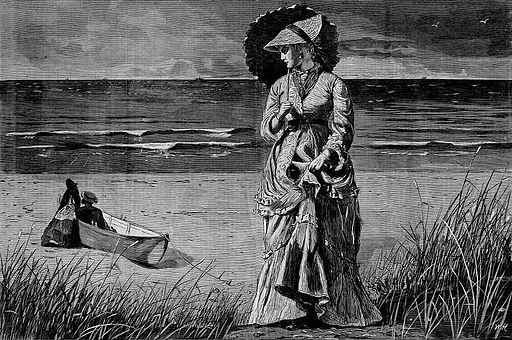Difference Between Jealousy and Envy
 Jealousy vs Envy
Jealousy vs Envy
Jealousy and envy are both emotions that deal with the desire for something. A lot of the time, they are used interchangeably, but they have separate meanings and are quite distinct.
‘Envy’, as a noun, is the resentful desire of what another person has.
“His envy of the beautiful city led him to attack it and destroy it.”
It can also mean the object of someone’s envy.
“The beautiful city was the envy of everyone around.”
‘Envy’ is also the verb for the same thing: desiring what another person has.
“I envy whoever got that beautiful car.”
The adjective form of the word is ‘envious’, and it means a person or thing that displays envy.
“He was an envious man, always seeing only what he did not have and wanting it for himself.”
Jealousy, on the other hand, is the fear that someone will take away what you already have. The most common use is to refer to someone who is worried that their romantic partner will find another lover.
“His jealousy drove him to check her phone every night and demand to know which other men she was talking to.”
It can also mean protective suspicion in general, not just specifically being suspicious in a romantic relationship.
“He hugged his box to his chest and eyed me with jealousy.”
It can also mean the same as the word ‘envy’, or resentment toward someone for their possessions.
“Her jealousy toward her friend’s wealth was what ultimately drove them apart.”
The adjective form of the word is ‘jealous’, and it means the same things.
“She was jealous that her friend was so wealthy.”
An interesting difference is the origin of the words. ‘Envy’ comes from an Old English word, which would be ‘nith’ in the modern alphabet. It did mean a resentful desire, but the other meanings of the word were ‘hate’, ‘evil’, ‘anger’, and ‘violence’. ‘Envy’ itself retained some of those meanings – such as general hatred, a bad public opinion, and rivalry – but the one that stuck is the current one.
‘Jealousy’, on the other hand, comes from a Greek word, which is the same one that the word ‘zealous’ comes from. The original Greek word meant passion, the desire to become as great as or greater than another person, or a passionate imitation. Overall, it seemed to mean the feeling of looking up to another person and wishing to become like them. It could also mean the object of desire, such as happiness, honor, or glory. It does not seem to have been a wholly negative term. From there it passed through French into Old English. One of the earliest meanings of the word in English was the act of passionately guarding something, but it eventually grew to mean something similar to ‘envious’.
The origins of the words are most likely the reason the words are separated as they are. However, their meanings have begun to merge over time. It is becoming more common in informal speech to use ‘jealousy’ when talking about envy. ‘Envy’, as a word, also seems to be disappearing, and when it is used, it tends to be in formal ways. It’s possible that ‘envy’ is going to disappear from common use soon and be replaced entirely with ‘jealousy’.
To summarize, when a person resents that another person has something that they don’t, it can be either envy or jealousy. When a person is guarding something that they own, or is afraid that they will lose something of theirs, they are jealous. ‘Envy’ is slowly disappearing as a word and is getting replaced by ‘jealousy’.
![]() Check out the books available for English Language Learners.
Check out the books available for English Language Learners.
- Difference between Hypothesis and Theory - August 20, 2009
- Difference Between Jews and Christians - August 17, 2009
- Difference Between Jealousy and Envy - August 12, 2009
Search DifferenceBetween.net :
 Email This Post
: If you like this article or our site. Please spread the word. Share it with your friends/family.
Email This Post
: If you like this article or our site. Please spread the word. Share it with your friends/family.


The difference between envy and jealousy:
Envy – I want what you’ve got.
Jealousy – I don’t want you to have it.
Don’t agree with the negative aspects submitted for ‘envy’: it can even be complimentary as in “Your car/house/dress/success is wonderful: I envy you for it” ie “I wish I had etc” and without any desire to take away the good fortune of the person envied and much to the contrary even imparting a confession and a wish, the former generously admitting one lacks what the other has and the latter expressing a wish to compliment and congratulate the person for his/her good fortune and acceptance that it is deserved and merited. Jealousy can have – in fact always does have sinister tones, and few would confess openly to being jealous. There is another point on which I would beg to differ which is that in the covering article it is stated that ‘envy’ dates from an old English word: given that versions of the word exist in Romance languages I find it hard to believe any of those would have been inspired to copy any word from the British Isles at a time when cultural flow was more likely to bein the opposite direction.